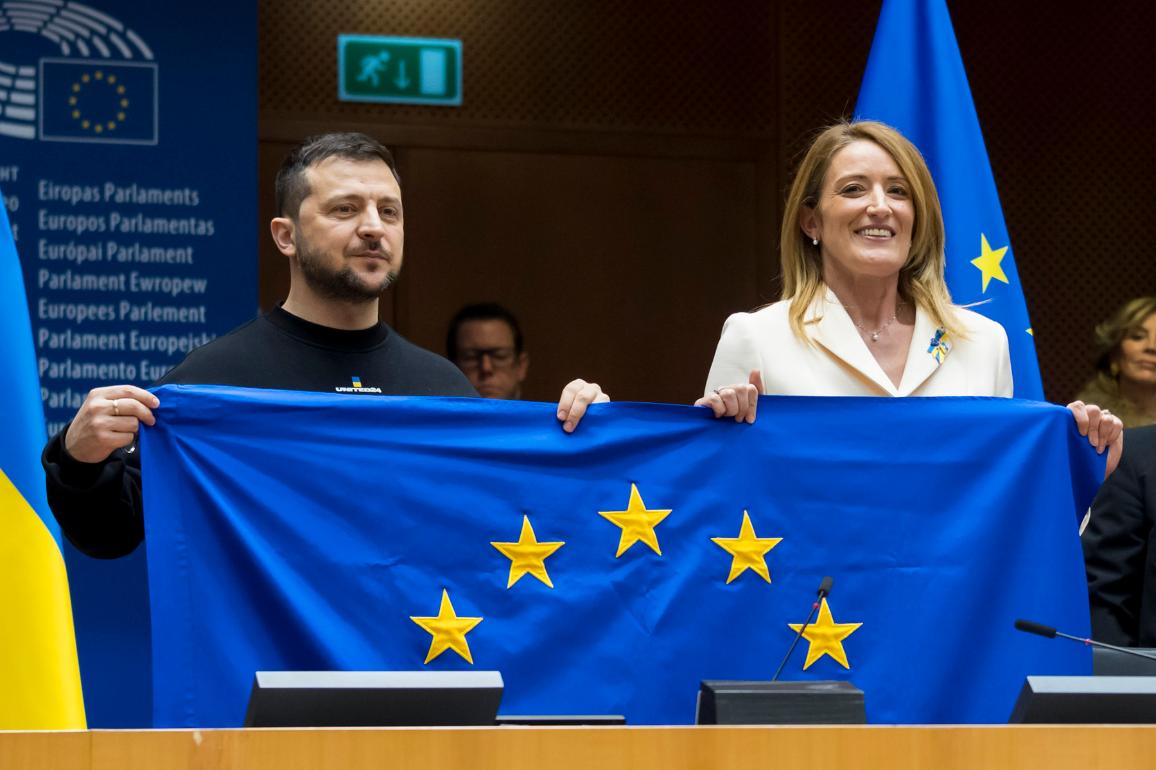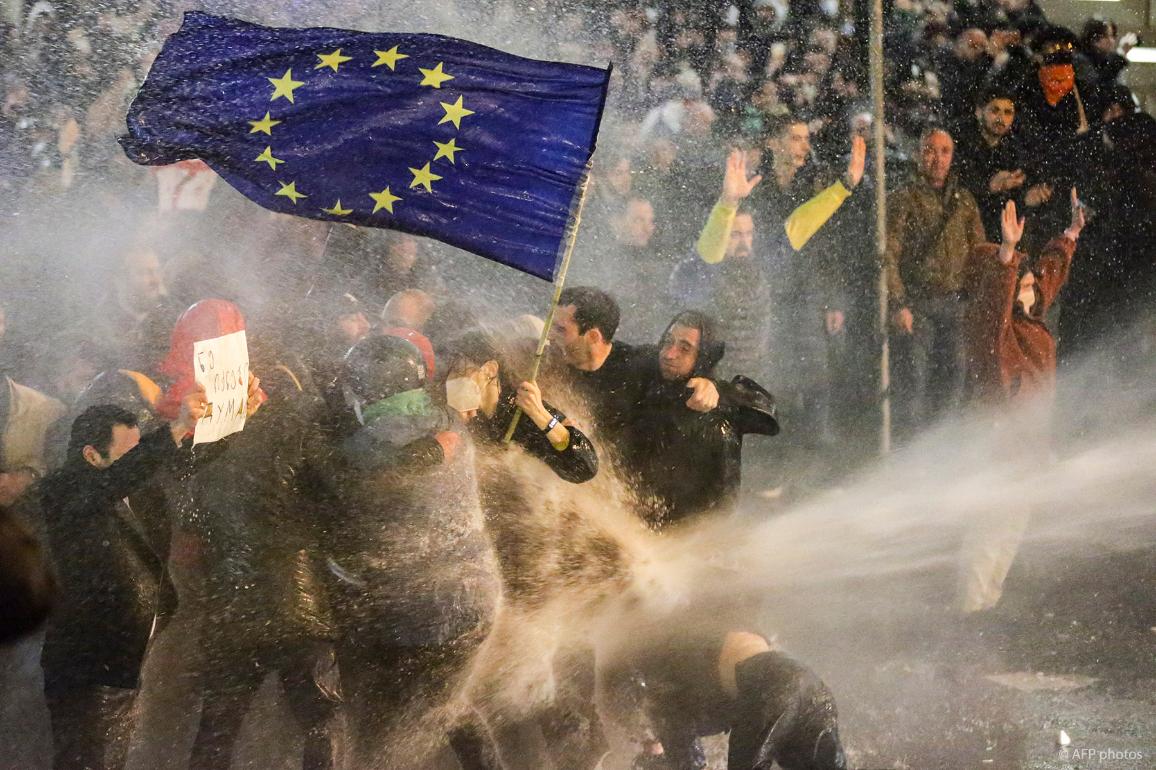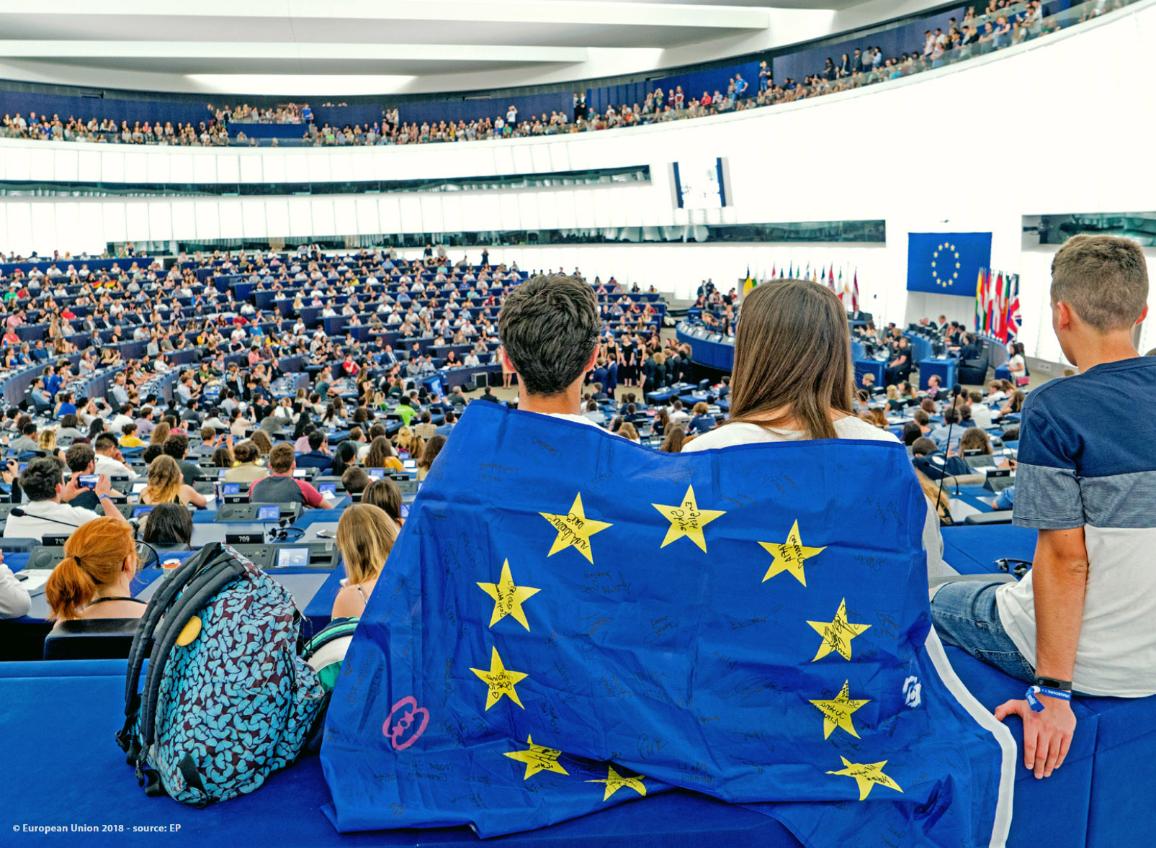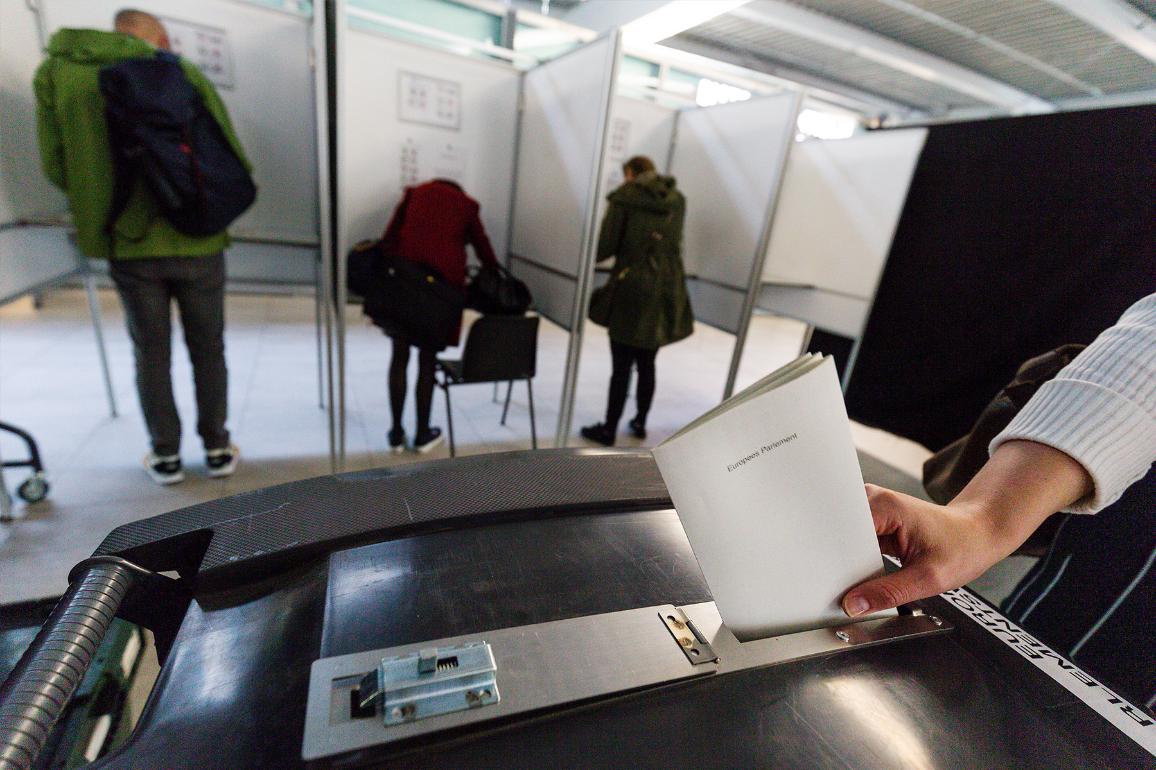2020. gadā Parlamenta deputāti sarunās ar Padomi sekmīgi cīnījās par līdz šim lielāko ES finanšu paketi, lai novērstu Covid-19 krīzes sekas un finansētu jaunās paaudzes ES programmas 2021.-2027. gadam. Deputāti panāca, ka ES ilgtermiņa budžetā par 16 miljardiem eiro tika palielināts finansējums tādām pamatprogrammām kā ES Veselība, "Apvārsnis Eiropa” (pētniecība), "InvestEU“ un "Erasmus+”. Lai vēl vairāk atbalstītu Ukrainu un veicinātu ES rūpniecības autonomiju, kā arī risinātu migrācijas jautājumus, deputāti uzstāja uz ilgtermiņa budžeta vidusposma pārskatīšanu un palielināšanu, ko Komisija, sekojot Parlamenta prasībām, ierosināja 2023. gada jūnijā. Parlaments par vienošanos ar dalībvalstīm nobalsoja 2024. gada februārī, integrējot tajā Ukrainas instrumentu un platformu "Stratēģiskās tehnoloģijas Eiropai" (STEP).
Sākotnējie ES ilgtermiņa budžeta un 750 miljardu eiro (vairāk nekā 800 miljardu eiro pašreizējās cenās) atveseļošanas instrumenta (sk. arī NextGenerationEU, RRF) mērķi bija uzlabot Eiropas sabiedrības sagatavotību krīzēm un veicināt pāreju uz digitālo un videi draudzīgu ekonomiku, īpaši atbalstot jauniešus, MVU, veselības aprūpes sistēmas un pētniecību. 2021. gadā tika pieņemti papildu pasākumi reģionu un neaizsargāto iedzīvotāju grupu atbalstam (piemēram, Taisnīgas pārkārtošanās fonds un Sociālais klimata fonds). Tos papildināja 2023. gadā, lai paātrinātu pasākumus, kuru mērķis ir panākt klimata neitralitāti un samazināt atkarību no Krievijas enerģijas (REPowerEU).
Parlaments arī apstiprināja tiesiski saistošu ceļvedi jaunu pašu resursu ieviešanai, lai segtu NextGeneration EU aizņēmumu atmaksu. Eiropas Parlamenta deputāti 2023. gada novembrī deva zaļo gaismu trīs jauniem ES ieņēmumu avotiem, kas tieši nonāktu Eiropas Savienības budžetā: tie ir ieņēmumi no emisijas kvotu tirdzniecības sistēmas, oglekļa robežkontroles mehānisma un uzņēmumu peļņas.
ES solidaritāte, kuras pamatā ir kopīgas vērtības un mērķi
Parlaments kā ES budžeta kontroles iestāde rūpīgi uzrauga budžeta izdevumus un valstu atveseļošanas plānus, ko finansē no Atveseļošanas un noturības mehānisma (ANM). Lai dalībvalstis varētu saņemt ES finansējumu, tām rūpīgi jāseko ES klimata un digitalizācijas mērķiem, kā arī jāievēro tiesiskums un ES pamatvērtības. Parlaments saskaņā ar 2020. gadā pieņemto “tiesiskuma nosacījumu” pieprasa Eiropas Komisijai apturēt visus maksājumus, ja šīs prasības netiek izpildītas. Proti, Parlaments apstrīdēja Komisijas lēmumu atcelt Ungārijai paredzēto ES kohēzijas līdzekļu EUR 10,2 miljardu iesaldēšanu un pieteica lietu (C-225/24) Eiropas Savienības Tiesā. Turklāt EP deputātiem izdevās uzlabot ANM kontroli un pārredzamību: katrai dalībvalstij ir jāpublicē 100 lielākie ANF finansējuma saņēmēji.
Taisnīgas algas un nodokļu pārredzamība
Eiropas Parlamenta deputāti pārliecināja dalībvalstis nodrošināt valsts minimālo algu un garantēt vīriešiem un sievietēm vienādu samaksu par vienādu darbu visā ES. Eiropas Parlaments un Padome ir panākuši politisku vienošanos par jaunu tiesību aktu, kas nodrošinās sociālo taisnīgumu un cieņu pret darba ņēmējiem un pārtrauks ļaunprātīgu praksi, ko īsteno pakalpojumu sniedzēji, kuri darbojas ar digitālo platformu starpniecību (Platformu darba ņēmēju akts). Tādējādi tiks izbeigta fiktīva pašnodarbinātība un ieviesti pirmie ES noteikumi, kas regulēs mākslīgā intelekta izmantošanu darbavietā.
EP deputāti arī aicina dalībvalstis stiprināt minimālā ienākuma shēmas un aizliegt praktikantu ekspluatāciju. Tā kā darba apstākļi kultūras un radošajās nozarēs dažādās dalībvalstīs ir ļoti atšķirīgi, viņi pieprasījuši izstrādāt jaunus ES tiesību aktus par mākslinieku un citu kultūras nozares profesionāļu sociālo statusu un darba apstākļiem. Vēl citā ziņojumā EP deputāti jo īpaši meklē veidus, kā nodrošināt, lai mūzikas straumēšanas platformas taisnīgi atalgotu mūziķus.
Pilnīgs aizliegums precēm, kas ražotas, izmantojot piespiedu darbu, neatkarīgi no tā, vai tās ir ražotas ES vai ārpus tās, liks šādu preču ražotājiem izņemt savas preces no ES vienotā tirgus un tās ziedot, pārstrādāt vai iznīcināt.
Pirmo reizi Parlaments pieņēma arī pārredzamības prasības attiecībā uz īstermiņa īres pakalpojumiem. Tas pašvaldībām ļaus labāk pārraudzīt vietējo īstermiņa īres tirgu interneta platformās, kā arī pasargās ceļotājus no krāpnieciskiem piedāvājumiem.
Turklāt godīga nodokļu sistēma, cīņa pret korupciju un naudas atmazgāšanu joprojām ir Parlamenta darba kārtībā. Lai efektīvi īstenotu jaunos noteikumus, deputāti vienojās ar dalībvalstīm par Eiropas Noziedzīgi iegūtu līdzekļu legalizācijas novēršanas aģentūras izveidi Frankfurtē (Vācijā). Parlaments arī pieņēma jaunus noteikumus par finanšu operācijām ar kriptovalūtām, lai tās varētu izsekot tāpat kā tradicionālos naudas pārvedumus. Eiropas Parlamenta un ES Padomes sarunu dalībnieki panāca arī vienošanos par jauniem tiesību aktiem, lai pastiprinātu noziedzīgi iegūtu līdzekļu iesaldēšanu un konfiskāciju un cīnītos pret ES sankciju pārkāpumiem.
Ekonomiskā stabilitāte un atbalsts ES rūpniecības nozarēm, lai veicinātu pāreju uz digitālu un zaļu ekonomiku
2023. gada februārī EP deputāti atbalstīja jauna ES finanšu instrumenta izveidi, lai veidotu un nostiprinātu rūpnieciskās ražošanas jaudas Eiropā. Pirmais finansēšanas instruments (STEP) tika izveidots, pārskatot daudzgadu finanšu shēmu. 2024. gada aprīlī tika pieņemti tiesību akti par gāzes piegādes dekarbonizāciju un elektroenerģijas tirgus reformu, lai stabilizētu cenas patērētājiem. Parlaments arī 2023. gadā apstiprināja jaunus noteikumus, lai nodrošinātu pietiekamu kritiski svarīgu izejvielu piegādi, un pieņēma "Neto nulles emisiju industrijas aktu", lai veicinātu Eiropas zaļo tehnoloģiju ekonomiku. Šim "konkurētspējas tiesību aktu kopumam" būtu jāveicina tīras enerģijas tehnoloģiju ražošana un ieviešana, kā arī jāpalīdz ES rūpniecības nozarēm radīt augstas kvalitātes darbvietas un stimulēt ekonomikas izaugsmi, lai sasniegtu Eiropas zaļā kursa mērķus.
Lai stimulētu ekonomikas izaugsmi mazo uzņēmumu līmenī, EP deputāti vienojās ar dalībvalstīm par tūlītēju maksājumu noteikumu izstrādi. Tie ļaus eiro pārskaitījumus veikt 10 sekunžu laikā bez papildu izmaksām. Tāpat viņi panāca vienošanos par noteikumiem, kam jāatvieglo MVU piekļuve kapitāla tirgiem. 9. sasaukuma pēdējā plenārsēdē Parlaments apstiprināja virkni noteikumu, lai palielinātu finanšu un ekonomisko stabilitāti ES. Starp tiem ir arī vienošanās ar dalībvalstīm par ekonomikas pārvaldības koordināciju ES un par valstu budžeta disciplīnas atjaunošanu no 2024. gada, vienlaikus padarot noteikumus skaidrākus, labvēlīgākus ieguldījumiem, vairāk pielāgotus katras valsts situācijai un elastīgākus.
Deputāti arī deva zaļo gaismu kopējās lauksaimniecības politikas (KLP) pārskatīšanai, lai mazinātu administratīvo slogu ES lauksaimniekiem un nodrošinātu lielāku elastību zaļināšanas nosacījumu izpildē.









